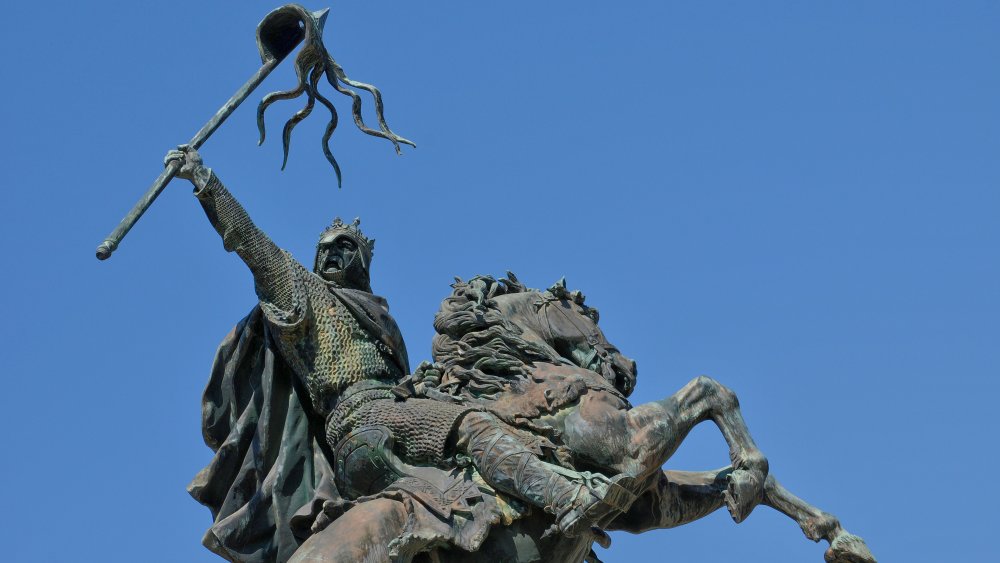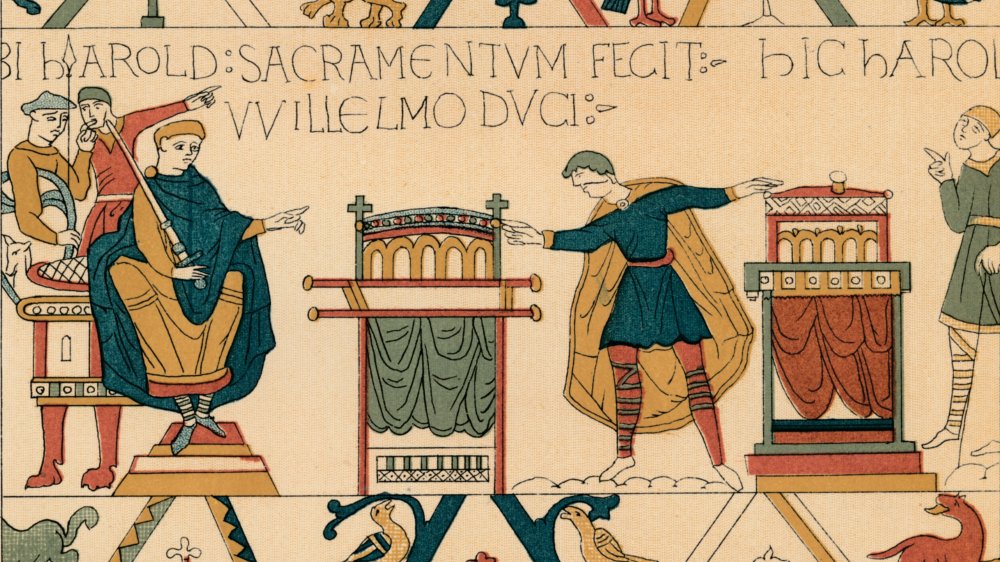This Was William The Conqueror's Final Misfortune
On Christmas Day, 1066, William the Conqueror was crowned as the new King of England, after invading the country to uphold his right to the throne. For the thirty-eight-year-old, this also crowned a military career marked by several attempts to overthrow what, as the official site for the British royal family royal.uk describes, his contemporaries saw as "William the Bastard."
After his father, the Duke of Normandy, died when he was seven, he was looked after by an uncle until his uncle's death two years later, plunging the northern French region into chaos until 1057, twenty years later. These decades saw William successfully defeat several rebellions and two invasions from Henry I, the then King of France as well as William's.
These battles formed the basis of William the Conqueror's reputation, but when King Edward the Confessor of England died, William had his eyes on a larger prize. He claimed that in 1051 — over a decade ago — the childless Edward promised him the throne. However, Harold Godwinson had been crowned instead. So the only thing to do was to do what William did best: battle. He invaded England, meeting an English army already beleaguered from fighting a Norse invasion in the North, by a town a called Hastings on October 14, 1066. There, William attacked up hill and Harold died, mostly likely due to an arrow shot through his eye. The English ranks broke and the way was clear for William to proceed to London and his throne.
A trip in Mantes
In 1087, Mantes burned. It served as one of the points of tension between King Philip of France, Henry I's immediate successor and King William the Conqueror, who had declared his complete independence of France after acquiring the English throne in 1066. During a period when William was stabilizing Maine, one of his more endangered frontiers in France, Philip had captured Mantes. William demanded Mantes back along with Chaumont and Pontoise in 1087. Evidently, however, King William the Conqueror felt that either he should control Mantes or no one should.
In July 1087, as the Encyclopedia Britannica chronicles, William entered Mantes by surprise, intent on burning it down. Then something happened. The exact nature of that something is unknown as there are two accounts. That said, one has always held sway. While on the one hand, as Miriam Bibby narrates on Historic UK's website, he might have fallen ill, the version she seems to prefer, as does everyone else including us, is given by the chronicler William of Malmesbury: "Some say that [William's] horse leaping over a dangerous ditch, ruptured his rider, where his belly projected over the front of the saddle. Injured by this accident, he sounded a retreat, and returning to Rouen, as the malady increased he took to his bed. His physicians, when consulted, affirmed, from an inspection of his urine, that death was inevitable." He died on September 9, 1087, presumably suffering terribly from the damage done to his intestines.
The finally final misfortune
While William the Conqueror was dead and thus beyond embarrassment, a further indignity awaited his corpse during his burial service. First, as the BBC regales in a special "On This Day" piece, his death saw his house and body looted, leaving him "almost naked on the floor." Then, at the actual funeral, a fire broke out in Caen, causing most attendees to leave to put the fire out.
The worst was yet to come however for the funeral, as described by the chronicler Orderic Vitalis, reads like a scene from "The Death of Stalin": "However, when the corpse was lowered into the stone coffin, [the priests] were obliged to use some violence in forcing it in, because through the negligence of the masons it had been made too short, so that, as the king was very corpulent, the bowels burst, and an intolerable stench affected the by-standers and the rest of the crowd. The smoke of the incense and other aromatics ascended in clouds, but failed to purify the tainted atmosphere. So the priest therefore hurried the conclusion of the funeral service and retired as soon as possible, in great alarm, to their respective abodes." The very bowels that caused William the Conqueror's death also fuelled his corpse's further humiliation. After managing to escape the stigma of being a bastard by conquering a country, his legacy will now always include a series of slapstick jokes about his weight and stench.


